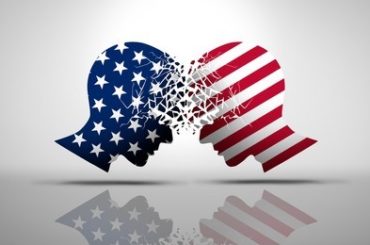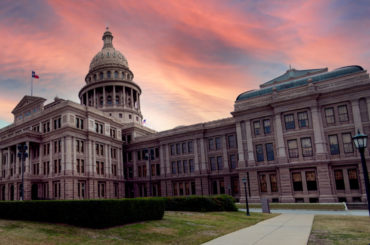President Joe Biden made orders that pushed millions of employees to become vaccinated, with an eye on changing a pandemic situation that killed thousands of Americans. The ordinances quickly deepened the political divisions in the US over government power and COVID-19 vaccinations.
Some business groups and employers welcomed the mandates, which concern most federal workers and contractors, healthcare workers, and organizations with at least 100 employees. US labor unions that represent millions of employees expressed their doubts about and support for the mandates. On the other hand, GOP leaders described the ordinances as an administrational attack on private businesses and personal freedoms.
Many Republican governors plan to challenge the constitutional qualities of the laws that impact around 70% of American employees in court. Should they do so, it would lead to one of America’s biggest legal battles concerning public health after Republican Party members litigated to overturn its Obamacare act. South Dakota Governor Kristi Noem tweeted a legal threat while addressing President Biden on the microblogging website. Biden responded curtly to the threats when he went to a middle school in Washington to encourage parents to vaccinate against coronavirus.
The ordinances represent the Biden government’s aggressive change in approach to the pandemic. For your information, the government had resisted broad vaccine requirements even as the more contagious Delta strain fueled resurgent coronavirus infections and even deaths in the 2021 summer season. At least around 65% of grown-ups in the US are now fully vaccinated. Biden remarked that he felt disappointed by the cavalier attitude of those GOP governors regarding the physical and mental condition of school kids and their communities.
According to legal experts, the US federal administration has extensive authority to deal with the virus-induced public health emergency. President Biden expects that his public health ordinances would continue to exist despite legal challenges. At the same time, several businesses nationwide thought about the following regarding the new requirements that Biden estimated would impact 100 million US people.
- How to verify the vaccination status of a worker
- How to track the tests required per week for unvaccinated workers
- How the rules would be enforced
- What if companies or workers refuse to follow the mandates
Still, the ordinances could reduce the amount of stress on businesses and could address the jumble of vaccination requirements. Several companies, including Tyson Foods and United Airlines, were already thinking about necessitating vaccines for workers. Supporting the government ordinances, lobbyist association Business Roundtable stated that US business leaders understand how important testing and vaccination are to defeat the epidemic. The Business Roundtable welcomed the Biden government’s ongoing vigilant action against coronavirus disease. For your information, Goldman Sachs, Amazon, General Electric, and many other big companies are part of the association.
Molly Moon’s Homemade Ice Cream founder cum CEO Molly Moon Neitzel wondered whether to necessitate vaccination for her 180 workers. She thought that the new ordinances offered her a bit of cover to require vaccination for them. When the Biden government announced the ordinances, Molly Moon Neitzel’s company had 6 to 10 people who chose against vaccination.
Hospital employees in Detroit and Houston that opposed previous vaccination ordinances, litigated over the rules of their employers. For instance, mask-related rules put workers in front of occasionally violent altercations with hospital customers who decline to use face coverings.
Greater Houston Partnership’s President Bob Harvey stated that some companies would be relieved now that the government made this move. For your information, the Greater Houston Partnership represents around 900 Texas companies. Several big companies and federal contractors refused to support or disagree with the ordinances; instead, they decided to just follow the rules.
Nevertheless, there was near-unanimous opposition from GOP governors to not just the ordinances but also business restrictions. Those governors have attempted to stop schools from necessitating the use of masks.
Georgia’s Governor Brian Kemp hinted at possible litigation to stop what he described as the unlawful overreach of a move from the US government. On the other hand, Alabama’s Governor Kay Ivey termed the rules overreaching and outrageous mandates. Florida’s Governor Ron DeSantis, meanwhile, implied that issuing the ordinances was Biden’s way of declaring war on millions of US citizens’ jobs and the rule of law.
Republican figures, like DeSantis, were among the governors addressing the grim summer death toll associated with the Delta strain. In the 2021 summer, the strain of coronavirus contributed to overwhelming ICU admissions, resurgent deaths and classroom outbreaks. It now seems that many cannot wait to start a political battle with the US government.
Imagine a situation where the states of the governors fail to block new ordinances in court, whereas the orders help reduce the rates of infections in those places. In that situation, those governors could benefit from having healthier inhabitants and going out of the spikes in COVID-19 cases that viciously affected the South.
Recently, numerous South governors looked to discover a strategy that would not only encourage vaccination but also portray it as a personal decision best made with no excessive governmental pressure. That subtle balance was evident when GOP governors criticized the government’s ordinances and touted the advantages of vaccination at the same time.
Mississippi’s Governor Tate Reeves, who found the ordinances terrifying, said that vaccination is a life-saving move. Even moderate GOP governors who enforced lockdowns earlier and promoted vaccination, criticized the sweeping ordinances. Utah’s Governor Spencer Cox stated that he had major concerns regarding the legality of the government ordinance. Describing the mandate as a mistake, Ohio’s Governor Mike DeWine stated that it would deepen the political polarization regarding vaccination.
Conversely, Democratic governors gave words of caution and support as they reflected on not only the volatile mandate-related politics in Washington but also the epidemic in several closely divided US states. Former Virginia Governor Terry McAuliffe stated that the ordinances would aid in not only blunting coronavirus but also lifting an economy that is strained by its Delta variant. For your information, McAuliffe is participating in the Virginia gubernatorial election.


